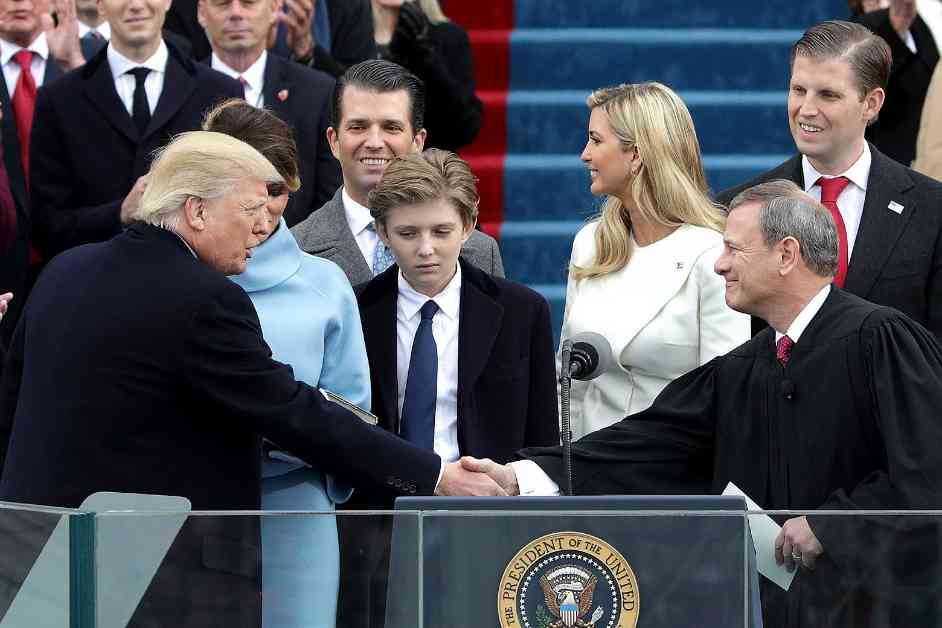The ongoing race between Kamala Harris and Donald Trump has brought to light the potential dangers of a second Trump presidency. While Harris focuses on policy goals, Trump’s proposals seem to veer towards extreme right-wing ideas, with removing fluoride from public water being one of his more coherent policy ideas. However, delving deeper into Trump’s words and actions reveals a concerning vision for the future of the presidency.
Trump’s belief in an all-powerful presidency, where the president wields authority without accountability, is a stark departure from the traditional understanding of the role. This authoritarian view of the presidency aligns with the Supreme Court’s decision to grant Trump sweeping criminal immunity, effectively shielding him from consequences for alleged crimes committed during his time in office. Chief Justice John Roberts’ opinion in Trump v. United States reads like an endorsement of Trump’s authoritarian tendencies, paving the way for a presidency that places personal ambitions above the rule of law.
The contrast between Trump’s vision for the presidency and Vice President Harris’ commitment to checks and balances highlights the stakes of the upcoming election. Will the next president uphold the principles of a democratic society, or will they embrace a monarchical style of leadership that prioritizes personal vendettas over public service? The choice between these two paths is crucial for the future of the country.
Trump’s intentions for a second term paint a grim picture of targeted prosecutions and political retaliation. His list of perceived enemies includes a wide range of individuals, from former President Obama to journalists critical of his administration. The prospect of a presidency marked by mass prosecutions and military tribunals is deeply troubling, signaling a departure from the norms of a functioning democracy.
The Supreme Court’s decision to grant Trump immunity sets a dangerous precedent for unchecked executive power. By absolving Trump of legal consequences for his actions, the Court has emboldened him to pursue a vengeful agenda that disregards civil liberties and the rule of law. Trump’s readiness to exploit the law for his own gain, coupled with the Court’s leniency towards law enforcement abuses, sets the stage for a presidency marked by persecution and retribution.
As the election approaches, the choice between a presidency rooted in democratic principles and one that embraces authoritarianism looms large. The implications of a second Trump presidency extend far beyond policy differences, raising fundamental questions about the future of American democracy. It is essential for voters to consider the implications of their choice and the kind of leadership they want to see in the years to come. The decision in 2024 will shape the course of the country for generations to come, underscoring the importance of upholding the values of accountability, transparency, and respect for the rule of law.
